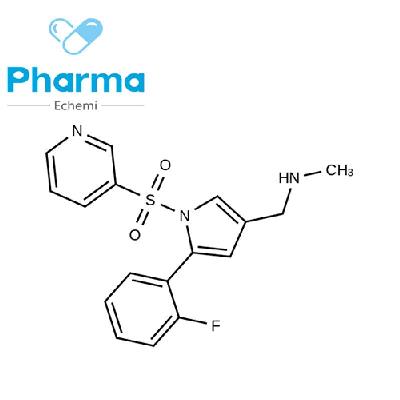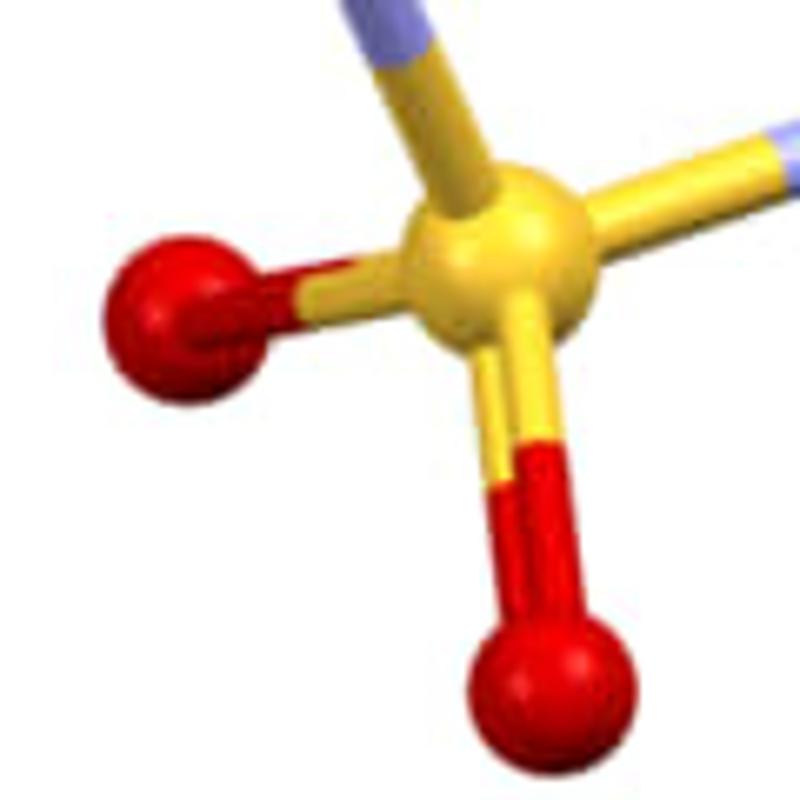-
Categories
-
Pharmaceutical Intermediates
-
Active Pharmaceutical Ingredients
-
Food Additives
- Industrial Coatings
- Agrochemicals
- Dyes and Pigments
- Surfactant
- Flavors and Fragrances
- Chemical Reagents
- Catalyst and Auxiliary
- Natural Products
- Inorganic Chemistry
-
Organic Chemistry
-
Biochemical Engineering
- Analytical Chemistry
-
Cosmetic Ingredient
- Water Treatment Chemical
-
Pharmaceutical Intermediates
Promotion
ECHEMI Mall
Wholesale
Weekly Price
Exhibition
News
-
Trade Service
About 3%-5% of advanced metastatic colorectal cancer (mCRC) is microsatellite highly unstable (MSI-H) type, also known as immunoinflammatory type, immunotherapy removes the "brake" of T cell response, and the disease response rate (ORR) of MSI-H patients treated with immune checkpoint inhibitors is up to about 60%.
In addition> 95% of mCRCs are microsatellite stable (MSS), and treatment with immune checkpoint inhibitors is not effective
for MSS-type mCRCs.
In recent years, immunotherapy has become another important means of anti-tumor therapy, and the benefit of MSS mCRC patients in immunotherapy has become an important research direction
.
Written by Lai JM
This article is authorized by the author to be published by Yimaitong, please do not reprint
it without authorization.
Standard treatment for mCRC[1].
First-line treatment
Second-line therapy
Third-line therapy
MSS type: regorafenib, fruquintinib, trifluuridine tepyrimidine (TAS-102).
Bevacizumab resistance mechanism
Regorafenib mechanism of action
Regorafenib is a polykinase inhibitor that targets several receptor tyrosine kinases (VEGFR1, VEGFR2, VEGFR3, FGFR1, FGFR2, TIE2, PDGFRs), tumorigenesis (KIT, RET, RAF1), and tumor immunity (CSF1R)-associated kinases for angiogenesis and metastasis.
The Chinese Asian Clinical Study (CONCUR) [2] showed that the median overall survival (mOS) of patients with mCRC with regorafenib third-line therapy reached 8.
8 months; compared with placebo, the risk of death was reduced by 45%.
Regorafenib is therefore indicated for the treatment of patients with mCRC who have previously received fluorouracil, oxaliplatin, and irinotecan-based chemotherapy, as well as prior anti-VEGF therapy and anti-EGFR therapy
.
Regorafenib can be dosed by titration of 80 mg/day in the first week, 120 mg/day in the second week, and 160 mg/day
in the third week.
Regorafenib improves tumor microenvironment[3].
, which inhibit the activity
of T cells.
Regorafenib improves three pathways in the immune microenvironment
"VEGFR, TIE2, CSF1R pathways":The "4A" mechanism of regorafenib combined with immune synergy:
"Anti-angiogenesis, anti-immunosuppression, anti-tumor cell proliferation, anti-metastasis":Related research progress - REGONIVO research [4].
The study included a total of 50 patients with advanced gastric or colon cancer, including 25 cases of gastric cancer and colon cancer, and the median number of previous treatment lines was 3 lines
.
After enrollment, regorafenib + nivolumab was treated, and the maximum tolerated dose was evaluated in the dose amplification stage, which was divided into 3 groups: (1) regorafenib 80mg/d, 21-day cycle, 7 days of discontinuation; (2) Regorafenib 120mg/d, 21 days a cycle, 7 days of discontinuation; (3) Regorafenib 160mg/d, 21 days a cycle, 7 days
of discontinuation.
All three groups were combined with nivolumab 3mg/kg q2w
.
The results of the study: the ORR of the overall (CRC, GC) reached 40%, of which the ORR of mCRC patients was 36%, and 1 of the 25 patients with bowel cancer was MSI-H, and after excluding this 1 patient, the ORR of MSS patients could still reach 33%, which was much higher than the previous MSS bowel cancer research data
.
The median PFS of CRC and GC patients was 6.
3 months and 5.
8 months
, respectively.
The study suggests that nivolumab + regorafenib 80 mg is the optimal dose for future studies, with an objective response rate of 40% (GC 44%, CRC 36%) and a median PFS of 6.
3 months
.
Summary and outlook:
PD-1/PD-L1 inhibitors produce an anti-tumor immune response by activating the immune system, and MSS-H bowel cancers differ in sensitivity to immunotherapy
.
MSI-H bowel cancer is a hot tumor with T lymphocyte infiltration but inhibition of activity, which can be treated with immune monotherapy
.
MSS bowel cancer is a cold tumor, which means that the level of T cells is low, the immune response is weak, and the efficacy of immunotherapy alone is not good
.
For MSS type bowel cancer patients, T lymphocytes cannot infiltrate the tumor tissue, and blood vessels can be normalized by anti-angiogenic targeted drugs, and better efficacy
can be achieved after combined immunotherapy.
Regorafenib is a multi-target anti-angiogenic drug, its VEGFR, TIE-2, CSF-1R targets play an important role in improving the tumor microenvironment, combined with PD-1/PD-L1 inhibitors are effective
in MSS-type bowel cancer.
It is expected that more data from large phase II and phase III clinical studies and basic studies will confirm that regorafenib can reverse the immune tolerance of immune checkpoint inhibitors in patients with MSS bowel cancer.
For MSS-type mCRC patients, regorafenib combined immunotherapy is a new direction
of immunotherapy in the future.
References:
[1] Chinese Society of Clinical Oncology, 2022 CSCO guidelines
for the diagnosis and treatment of colorectal cancer.
[2] Li J, Qin S, Xu R, et al.
Regorafenib plus best supportive care versus placebo plus best supportive care in Asian patients with previously treated metastatic colorectal cancer (CONCUR): a randomised, double-blind, placebo-controlled, phase 3 trial.
Lancet Oncol.
2015; 16(6):619-629.
[3] Akin Telli T, Bregni G, Vanhooren M, et al.
Regorafenib in combination with immune checkpoint inhibitors for mismatch repair proficient (pMMR)/microsatellite stable (MSS) colorectal cancer.
Cancer Treat Rev.
2022; 110:102460.
[4] Fukuoka S, Hara H, Takahashi N, et al.
Regorafenib plus nivolumab in patients with advanced gastric (GC) or colorectal cancer (CRC): An open-label, dose-finding, and dose-expansion phase 1b trial (REGONIVO, EPOC1603).
ASCO, 2019, anstract 2522.
This platform aims to deliver more medical information
to healthcare professionals.
The content published on this platform cannot replace professional medical guidance in any way, nor should it be regarded as diagnosis and treatment advice
.
If such information is used for purposes other than understanding medical information, this platform does not assume relevant responsibilities
.
The content published by this platform does not mean that it agrees with its description and views
.
If copyright issues are involved, please contact us and we will deal with
it as soon as possible.







